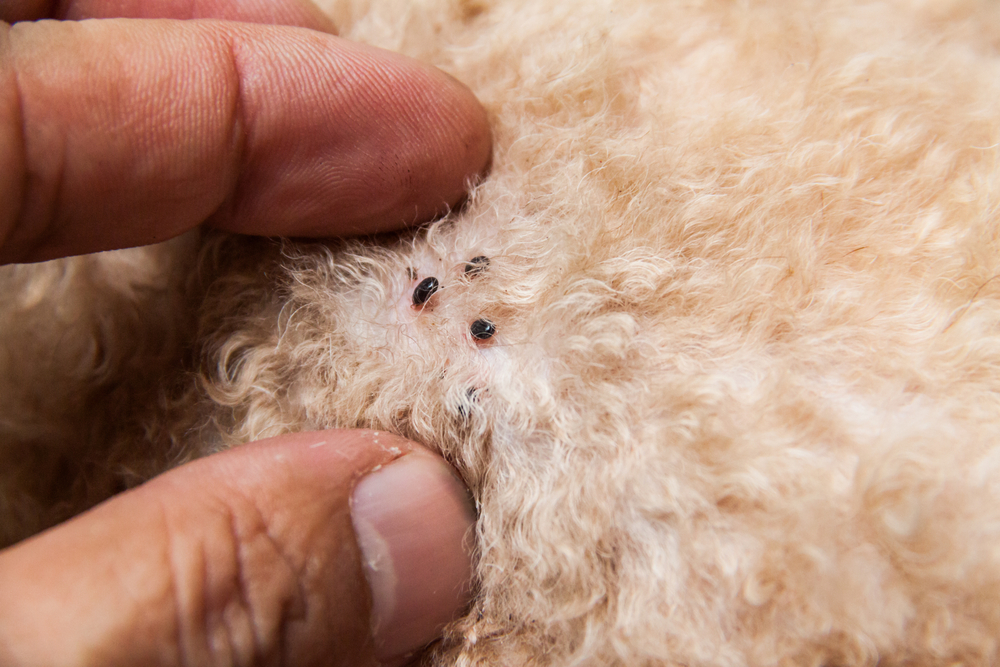Treatments for Fleas in Dogs can be quite a challenge, for dog owners as these pesky critters can cause a lot of discomfort and health issues if ignored or not treated promptly and effectively. It’s crucial to know how to handle flea problems, in dogs to ensure your furry friend stays healthy and your home remains free of these pests. Lets explore some methods to address this issue and keep our pets happy and comfortable.
Recognizing Fleas on Your Dog
Before considering treatment choices for your dogs flea problem it’s crucial to know how to identify the presence of fleas in your friends coat and skin. Fleas are creatures, with a brown hue that reside in the fur and sustenance, from your dogs blood supply. Here are a few indicators that could suggest your dog is dealing with fleas;
- Excessive Scratching: If your dog is constantly itching, especially around their neck, belly, or tail, it could be due to fleas.
- Visible Flea Dirt: Flea dirt looks like tiny black or reddish specks on your dog’s skin. It’s essentially flea excrement and is a telltale sign of an infestation.
- Red or Inflamed Skin: Flea bites can cause irritation, which may lead to red patches, scabs, or hair loss.
If you suspect your dog has fleas, acting quickly is crucial to preventing the infestation from spreading.
Top Treatments for Fleas in Dogs
Numerous approaches exist for addressing fleas in dogs. From remedies, to medications; each choice comes with its advantages and drawbacks. The suitable treatment, for your friend will vary based upon their well being status, historical background and the extent of the flea issue they are facing.
- Topical Flea Treatments
One popular approach, for managing fleas is through treatments or spot on treatments that are directly administered to your dogs skin in the area, between the shoulder blades.
- How It Works: When you apply treatments to the skin they get absorbed and spread through the oil glands to eliminate fleas upon contact, with them. Its also known that some of these treatments can ward off infestations by disrupting the life cycle of fleas.
- Benefits: These therapies are easy to use and offer protection for, up to a month at a time. They are also water resistant which makes them ideal, for dogs that’re always active.
- Oral Flea Medications
Monthly oral flea treatments, for dogs are administered in pill form and target fleas internally by eliminating them post bite.
- How It Works: When a flea bites your dog, it ingests the active ingredient in the medication, which kills the flea from within.
- Benefits: Oral treatments act quickly and are highly effective in eliminating both adult fleas and flea larvae. Unlike topical treatments, there’s no risk of the medication washing off.
- Flea Collars
Traditional flea collars have been around, for a while. Have evolved to provide protection, against fleas by releasing ingredients that keep them away and eliminate them.
- How It Works: The collar slowly releases insecticides that spread over your dog’s body through the natural oils on their skin.
- Benefits: Flea collars can provide long-lasting protection, with some lasting up to eight months. They’re also easy to use and ideal for dogs who don’t tolerate topical treatments well.

- Shampoos and Sprays
Using flea shampoos and sprays is a fix, for dealing with flea problems as they can offer relief by getting rid of fleas upon contact; however they usually do not provide lasting defense against future infestations.
- How It Works: Shampoos are applied during a bath, while sprays are applied directly to your dog’s fur and skin. Both treatments contain chemicals that kill fleas on contact.
- Benefits: These methods are useful for severe infestations when you need immediate relief for your dog. However, they need to be followed up with a more lasting treatment option.
- Natural Remedies
Some individuals who have dogs opt for remedies to combat fleas, like oils or apple cider vinegar instead of chemical products for a more organic approach; however the effectiveness of these methods is widely discussed and they might not offer the same level of protection as traditional treatments available, in stores.
- How It Works: Traditional remedies usually deter fleas of eradicating them and might require regular applications, for continuous safeguarding, against infestations.
- Benefits: Using treatments, for dogs is an option as they are free from chemicals and can be milder, for sensitive pups; though they may need to be applied more often and might not always be as effective.
Preventing Future Flea Infestations
Dealing with fleas is the beginning; it’s vital to focus on avoiding future outbreaks to keep your dog free, from fleas for good! Here are some suggestions to help steer clear of another infestation;
- Regular Grooming: Regular grooming of your dog makes it simpler to detect fleas at a stage thereby decreasing the chances of infestation by bathing and brushing them frequently.
- Cleaning Your Home: Fleas have the ability to thrive in your dogs bedding as, in carpets and furniture within your living space; by frequently vacuum cleaning these areas and washing bedding regularly while also utilizing flea sprays indoors can help minimize the chances of them reappearing.
- Year-Round Prevention: Even during colder months, fleas can survive indoors. Using flea preventatives year-round can keep fleas at bay, especially if your dog spends time outside. In the seasons of the year fleas have been known to persist indoors. To deter these pests it’s advisable to use flea prevention measures particularly if your dog enjoys outdoor activities.
Conclusion
Dealing with fleas goes beyond being bothersome, for your dog. It can lead to discomfort and potential health issues well! Spotting the indicators of a flea problem. Implementing an appropriate treatment regimen can help safeguard your furry friend from these pesky pests effectively. Whether you opt for solutions or oral medications. Prefer natural remedies instead. Prompt action and consistent preventive strategies are crucial steps to take against fleas. To protect your dogs well being and keep them comfortable in the fight, against fleas requires attention and proactive measures at all times.

